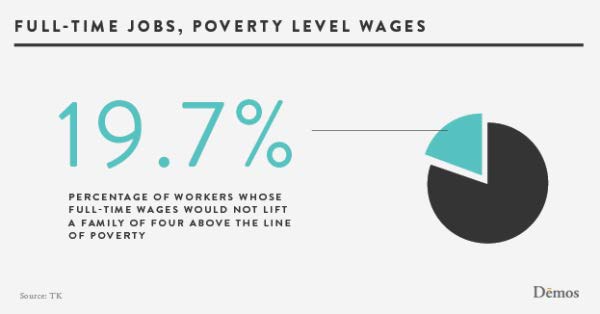28.02.2012
Policy Points
Economic policy reports, blog postings, and media stories of interest:
28.02.2012
Policy Points
David Callahan of Policy Shop debunks yet again the myth that almost half of all Americans pay no taxes.
The most obvious problem with this statistic, as many have pointed out before me, is that the narrow phrase “federal income tax” is misleading — and, it would seem, deliberately so. Every tax analyst at [the] Heritage [Foundation] well knows that federal payroll taxes, for Social Security and Medicare, now bring in nearly as much federal tax revenue as income taxes — and also know that a great many Americans pay more in payroll taxes than income taxes.
…
Yet the payroll tax is barely mentioned in the Index of Dependence. Beyond obscuring the truth, this omission distracts attention from another important flaw of the report: Which is that many Americans who are supposedly wards of the state, “dependent” on Social Security and Medicare, are actually drawing on programs that they spent their working lives paying into. What’s wrong with that? We don’t go around talking about how retirees are “dependent” on their 401k nest eggs.
28.02.2012
Policy Points
A new report from the NC Budget and Tax Center lays out strategies for rebuilding North Carolina’s recession-battered public institutions.
Only when the state collects adequate revenue can it educate students, train workers, and keep communities safe and healthy. These last four years have taken a severe toll on North Carolina’s public structures and systems, including public schools, colleges and universities, roads, courts, parks, and hospitals. After responding to the initial recession‐driven collapse in state revenues with a balanced approach of targeted spending cuts and additional revenues in 2009, state policymakers have taken a harmful cuts‐only approach to dealing with diminished revenues and growing demand for education, health care, and other core public services.
…
In fact, industry‐standard economic modeling finds that the 2011‐13 state budget will result in tens of thousands fewer jobs in North Carolina’s public and private sectors over the two years of the budget. In the long term, there is significant evidence that cuts to tax‐financed investments in education, health, and public works threaten the state’s ability to sustain a robust, sustainable economic recovery
27.02.2012
Policy Points
Economic policy reports, blog postings, and media stories of interest:
27.02.2012
Policy Points
Policy Shop reminds readers that full-time work isn’t necessarily enough to make end meet.



 Email Sign-Up
Email Sign-Up RSS Feed
RSS Feed